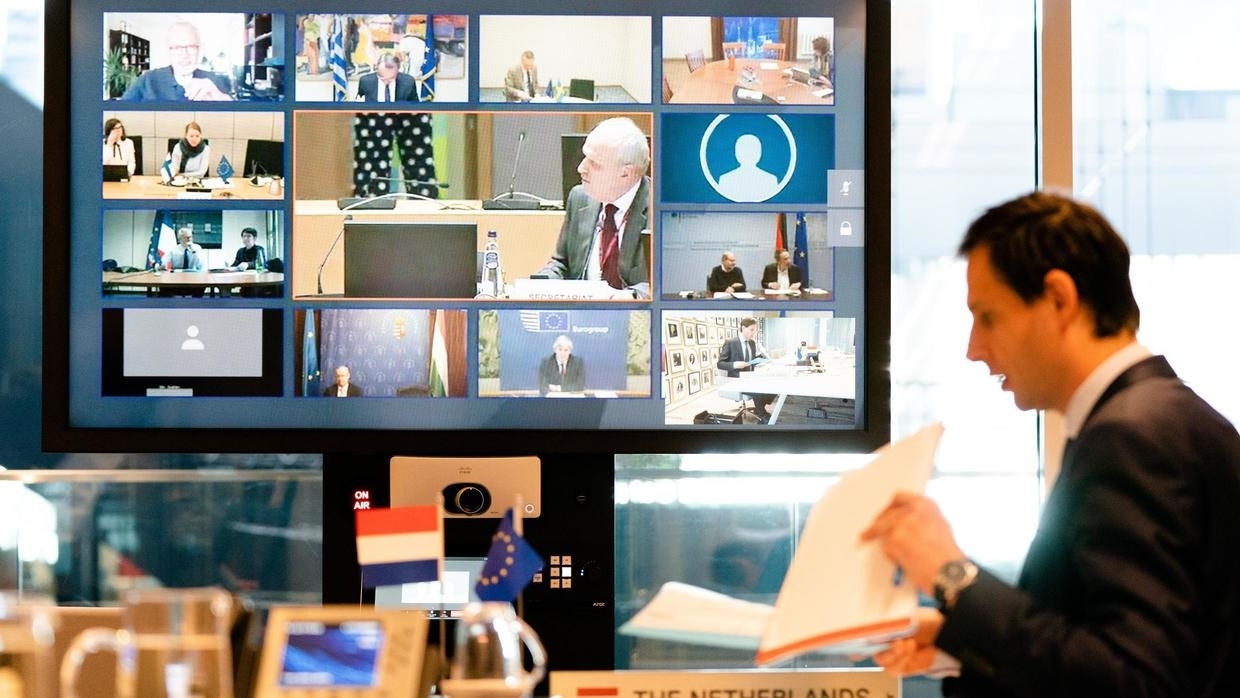
EU finance ministers struggled Tuesday to bridge differences on how to relaunch their economies after the coronavirus, with Germany refusing Italy's call for
unprecedented solidarity with hard hit countries.
The European economy has been battered by the epidemic, with countries imposing strict lock downs that have closed businesses and put normal life on hold.
For weeks the EU's 27 member states have bickered about ways to respond to the havoc caused, with Italy and Spain pleading for a solidarity fund that would be paid for by European partners jointly borrowing money on the markets.
- 'No business as usual' -
As a compromise, Berlin and its allies believe a European rescue should use the eurozone's 410-billion-euro ($443-billion) bailout fund, as well as wait to see the effects of monetary stimulus already unleashed by the European Central Bank.
Eurogroup chief Mario Centeno is tasked with finding a compromise in a fight that has taken an emotional turn, with more than 50,000 so far killed by the virus in Europe.
"We all know this is not time for business as usual policies. We must show our citizens that Europe protects them," Centeno, who is also Portugal's finance minister, said ahead of the talks.
Ministers must "make a clear commitment for a coordinated and sizable recovery plan," he said.
On Monday, German Chancellor Angela Merkel reiterated her government's position in favour of activating the European Stability Mechanism (ESM) bailout fund to help countries that needed it.
But she pointedly did not mention shared borrowing such as coronabonds or eurobonds, angering Rome.
"Eurobonds represent a serious response tailored to the crisis we are living through," Italian Prime Minister Giuseppe Conte argued on Monday.
Influential France backs Italy and Spain and insists the economic destruction caused by COVID-19 demanded a new way of thinking in Europe and wanted member countries to help each other in unprecedented ways.
- 'Debate will continue' -
Italy entered the talks refusing recourse to the ESM, which was created in 2012 during the eurozone debt crisis to help states that no longer had access to borrowing on the markets.
Its programmes come with strings attached for countries that use it; heavy conditions that Italy and Spain say they would refuse if other capitals were to try to impose them after the virus.
Northern countries insist that conditions can be held to a minimum given the causes of the crisis, but that in the longer term a country would have to get their finances in order.
Officials in Brussels said Germany and its allies will likely prevail on Tuesday, although ministers will not dismiss ideas such as coronabonds for good.
French Finance Minister Bruno Le Maire has threatened to refuse the overall deal if this were not the case.
"At the end everyone will be able to say eurobonds are still there. Or not. And the debate will continue," one diplomat said, outlining an expected fudge at the end of Tuesday's talks.
Whatever is agreed by the ministers on Tuesday will then go to EU leaders, who are expected to convene by video conference later in the month. A senior official told AFP this would likely come after Easter, which falls on April 12 this year.
Also under discussion is a lending facility from the European Investment Bank for struggling small- and medium-sized businesses, and a guarantee fund for certain national unemployment schemes to be run by the European Commission.afp



































